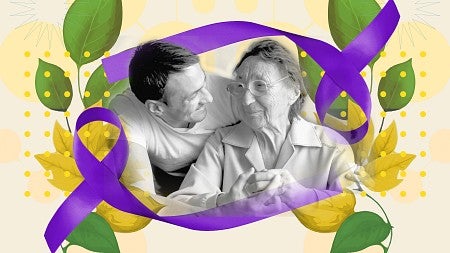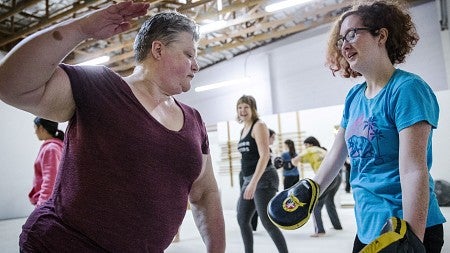
Faculty Profile: Atika Khurana, Prevention Science Program
Associate professor in the College of Education sheds light on factors that drive teens to risky behaviors
By Emily E. Smith • Photo by Julia Wagner • January 21, 2020
5 min read
Teens are notorious for arguing with their parents, resisting authority, and making decisions that stupefy adults. But “that conflict has a reason,” says Atika Khurana of the Counseling Psychology and Human Services department. Taking risks, making mistakes, and learning from life’s experiences are all part of the transition to adulthood.
Khurana studies the factors that drive teens to engage in risky or harmful behavior and interventions that can prevent them from serious, life-altering consequences. In her research, she’s found that adolescents with weak impulse control are more likely to start using drugs or alcohol at younger ages, develop addiction, and engage in risky sexual behaviors.
She also explores ways to improve adolescent self-control through cognitive training, mindfulness-based approaches, and parenting techniques.
At the root of her work, Khurana says, is a single question: “How do we better understand teenagers and allow them the space, the freedom, and the flexibility to explore and learn from their experiences, while as a society providing them a safe context in which to do that?”
Who’s at risk?
Experimentation is part of growing up, Khurana says—but it makes it difficult to tell whether a teen’s risky behavior is a symptom of a comparatively normal drive of trying out new things or a sign of more serious problems to come. Khurana has found that teens with poor impulse control and an underlying weakness in working memory are more likely to be headed for problems that could include early drug use and risky sexual behavior.
“There’s a subgroup [of all teens] that is indeed at greater risk for some long-term adverse outcomes,” Khurana says. Identifying which teens are at risk is critical to lending support to those who need it.
Media and violence
Khurana examines connections between teens’ media consumption and their involvement in risky or harmful behaviors. Heavy exposure to violent movies and TV shows has long been linked to aggressive behavior during adolescence, Khurana says; she found the link is even more pronounced in adolescents with weaker self-control. She has also identified ways to protect teens from the effects of violent media; she recommends parents limit adolescents’ exposure to certain forms of media and spend time with them, fostering communication.
A bit of a rebel herself
Youthful rebellion doesn’t always announce itself through breaking rules or experimenting with drugs. As a teen, Khurana was defiant in another way: never satisfied with accepting things as they were, she constantly questioned her parents and authority figures. A child who wants to know the rationale for every rule might present a challenge for a parent or teacher but an inquisitive nature has served Khurana well. “There’s a lot of value in questioning,” she says.
Emily E. Smith,BA '10 (women's and gender studies, journalism: news-editorial), is a writer and editor in Bozeman, Montana.




